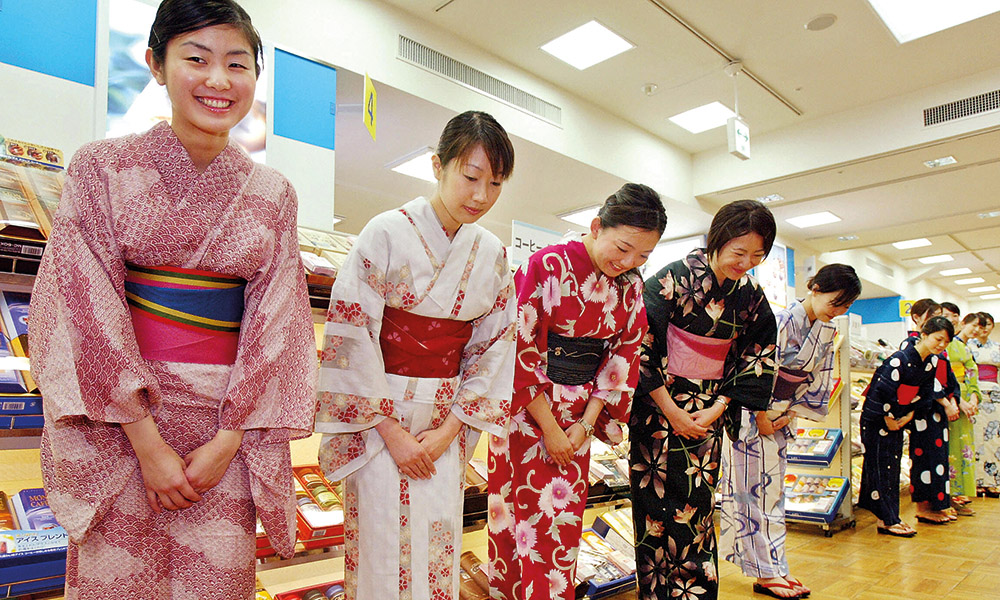By Liu Ru
The father of Japan’s capitalist economy is Shibusawa Eiichi ( 1840-1931 ), a highly respected Japanese industrialist. Guided by his study of Confucius’ Analects, Shibusawa brought Western capitalism to Japan, but with a core emphasis on morality and business ethics.
In Part 1 and Part 2, we learned how Shibusawa laid the foundation of Japan’s modern economy through his understanding of The Analects. But how did Shibusawa derive these understandings and apply them to business management? I found some answers in Shibusawa’s book—Lectures on the Confucian Analects.
Learning is not for oneself. Cultivate character and then act.
Shibusawa Eiichi, the ‘father of Japan’s capitalist economy’
Putting Confucius’ Teachings Into Practice
In his book, Shibusawa discussed the principle of applied learning. Shibusawa believed that Confucianism was not meant to be dissected and analysed by intellectuals, but to be practiced in day-to-day life. If Confucius’ teachings were not applied to daily life, they would lose their value and purpose—we fail to gain a true understanding of Confucius’ teachings, nor do we learn how to utilise them.
In his book, Shibusawa highlighted this quote from ‘Xue Er’, the first chapter of The Analects:
The Master said, “A youth, when at home, should be filial, and, abroad, respectful to his elders. He should be earnest and truthful. He should overflow in love to all, and cultivate the friendship of the good. When he has time and opportunity, after the performance of these things, he should employ them in polite studies.”
In other words, students should practice being virtuous in their daily lives, before focusing on academic excellence. They should, first and foremost, fulfill their roles in family and society responsibly. They should be trustworthy, benevolent and impartial, and be close to sages and virtuous people. When all this has been done, only then should they focus on acquiring academic knowledge.
On a deeper level, this was what Shibusawa took away from the quote: Confucius’ teachings were meant to be applied to our daily lives. In fact, he felt that according to Confucius, our greatest priority should be our duties and actions in day-to-day life. This included all the minutiae of daily living, including how one should exercise filial piety, respect, and benevolence. While doing so, we should also pay attention to our motives and ensure that they are virtuous.
As for academic knowledge, such as literature, history, and the arts, they are of secondary importance. Enhancing our knowledge in these domains is meant to complement our spiritual growth, by training the mind to think more logically and broadly. By dispelling ignorance and insular thinking, we will be able to take a righteous path.
Ultimately, the fundamental purpose of learning is to apply it to daily life, to provide us with guidance in dealing with life’s problems. This had been Shibusawa’s attitude toward Confucian teachings since his youth. As such, he disliked the abstruse, analytical approach that many intellectuals took with Confucianism.

Shibusawa said, “Learning is not for oneself. Cultivate character and then act. ‘Real learning’ (jitsugaku) is applied learning. From 1873, when I was thrust into the business world, until now, I have worked on harmonising morality and economy. The application of the sage’s teachings is the foundation for these efforts. There are many today who can speak beautifully, but lack the courage to act on these principles and apply them to management.”
Shibusawa was very clear that there was no conflict between being a businessman and being virtuous. The key lies in preserving morality while working in finance.
Today, very few people are adept at practicing virtue in their daily lives. As such, they view businessmen and those who work in the finance sector as inherently corrupt and profit-driven.
The truth is, they lack the courage to be involved in finance while putting Confucius’ teachings into practice. They have misunderstood Confucius’ teachings, thinking that virtuous men cannot be businessmen or have wealth. Isn’t that similar to calling a dish unpalatable even before giving it a try?
Real learning’ is applied learning. From 1873, when I was thrust into the business world, until now, I have worked on harmonising morality and economy. The application of the sage’s teachings is the foundation for these efforts.
Shibusawa Eiichi, the ‘father of Japan’s capitalist economy
There is nothing wrong with being wealthy—the key is how we treat our wealth. If one is able to take a righteous path and use one’s wealth to better society, people and the nation, isn’t that a good deed?
As Shibusawa said, “Don’t look for personal profit, but seek to profit the country and be faithful to your parents and friends.”
Making Decisions With Steadfast Belief
Today, in modern Japan, those who work in finance or commerce are highly respected. But this phenomenon did not exist at the beginning of the Meiji Restoration Period. At the time, people looked down on merchants and businessmen as being corrupt and greedy.
When Shibusawa first decided to enter the financial realm, he faced many objections from friends and family. Believing that he would become another unscrupulous, profit-hungry businessman, they warned him that businessmen were looked down upon, and that he would come to regret his decision.
However, Shibusawa countered that entrepreneurship and finance did not make people inherently corrupt. Instead, it was unethical businessmen who had given finance a bad name. He believed that when Confucius spread his teachings on virtue, they were meant to be applied to all aspects of life, including business.
It must have taken Shibusawa a lot of courage to resign from his prestigious post in the Ministry of Finance and become an entrepreneur and investor. However, he held onto the steadfast belief that, as long as he adhered to Confucius’ teachings, his business ventures would flourish and change the way Japanese viewed businessmen. This courage did not stem from arrogance, but from his strong conviction in Confucius’ teachings.
Because of his steadfast belief in Confucius’ teachings, Shibusawa was able to ignore his dissenters and found over 500 corporations in Japan, including banks, industries, and infrastructure companies. His efforts helped establish Japan’s modern economy, benefiting society and building a positive culture of business ethics. He rectified the reputation of businessmen and the financial sector, so that business could be seen as a noble calling.
By remaining true to his beliefs and putting them into practise, Shibusawa demonstrated that when a businessman remains ethical and righteous, he or she can still attain lasting prosperity and respect. Confucius would have been happy to know that he has such a disciple to be proud of!
















